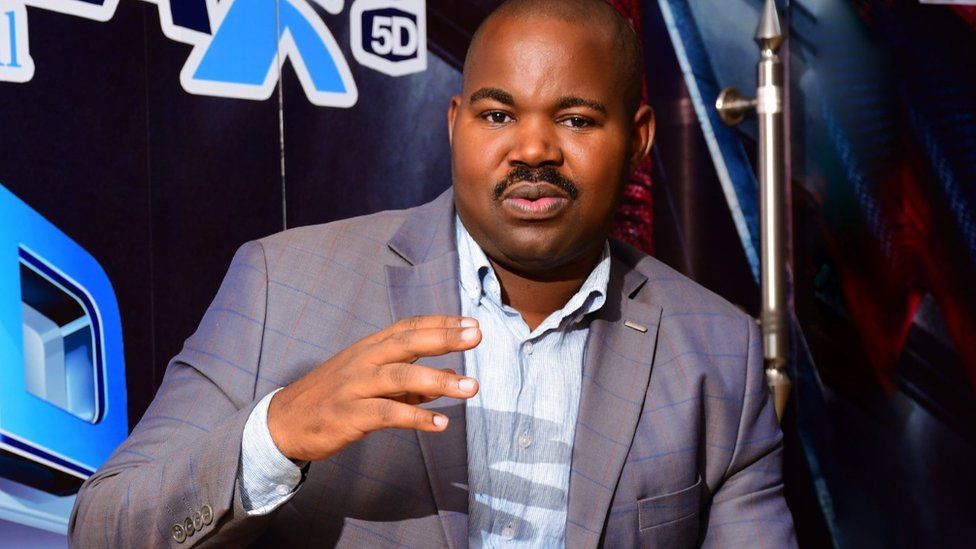To the casual observer, it seemed like the long-cherished dream of a new single currency for East Africa had come to fruition.
An account on X, called “Government of East Africa”, complete with a grey tick suggesting it was the real deal, released an image of a specimen note worth five sheafras, featuring a coat of arms and a space for a signature from a central bank governor.
The name sheafra was coined by combining shilling of East Africa and franc – currencies in use in the region.
The original posts from last Sunday were viewed more than a million times, going viral after being picked up by major blogs and at least one popular online media outlet in Kenya. It was reported as a launch.
The truth was still putting its shoes on as the apparent news of the single currency spread.
Some enthusiastically welcomed the idea, while others debated the name and the design.
Finally, the East African Community (EAC) – a bloc of eight countries – stepped in to say it was not true.
The man behind what turned out to be a fake single currency said he was surprised at how the news spread and the attention it received.
Ugandan Moses Haabwa told the BBC that he wanted to offer hope to people in the region.
He is the self-styled overseer of what he calls the “Federal Republic of East Africa Government”, which does not exist.
The man, in his late 30s, is a relatively mysterious figure who says he has worked in the intelligence field. He currently runs a company that, among other things, says it carries out private investigations.
He also once said that he had been appointed the ambassador for an unknown European dukedom, which itself is shrouded in mystery and is probably a complete fiction.
For the past three months, the group that he leads has been releasing examples or “specimens” of different denominations of the sheafra on social media.
Grey tick from X
The earlier posts did not attract much attention, but for some reason the five sheafra note captured the imagination.
“The one we released [last Sunday] was the last one we were to post. I didn’t tell anyone to tweet that we had ‘launched’, but how the media picked it [up] we don’t know,” he said.
The posts had the air of legitimacy as his “Government of East Africa” account was given a grey tick by X in January.
According to the social media company, this means that it is the official account of a government or multilateral organisation
The BBC has written to X to find out why it gave the account its stamp of approval but has yet to hear back.
A second reason why the sheafra created some excitement was that a new single currency for East Africa has long been discussed by the EAC.
But the regional bloc, as well as the Bank of Tanzania, dismissed the sheafra, calling on people to ignore rumours circulating on social media about the unveiling of new banknotes for the region.


“The EAC Secretariat wishes to inform all our stakeholders that the Partner States’ journey to a single currency is still a work in progress,” the EAC posted on X.
In 2013, EAC member countries set a target for a single currency by this year.
The bloc has since pushed the target date to 2031.
The eight members – Burundi, the Democratic Republic of Congo, Kenya, Rwanda, South Sudan, Somalia, Tanzania and Uganda – are very different in terms of their culture, economies, physical size and politics.
While a single currency may be desirable in that it can make cross-border trade cheaper and easier and therefore boost economic growth, it might not benefit all countries equally – some fear that Kenya, the region’s most developed economy, would be too dominant.
Mr Haabwa said his project was triggered by the EAC’s delay and the feeling that people were losing trust in the community.
He said that part of the reason behind the posts was to offer hope to East Africans that “things can be done”.
“Posting is one way you can tap into people’s minds. If we hadn’t tweeted we wouldn’t be having this conversation,” he told the BBC.
He believes that his project to push for closer East African union is “God-given”.
The EAC Secretariat “can’t run away from the truth, East Africans want unity”, he added, saying that the EAC should speed up the work on the single currency.
Asked about the legality of what he was doing, Mr Haabwa said: “We are in the process of making these things legal, step by step. Starting from the country we are in.”









